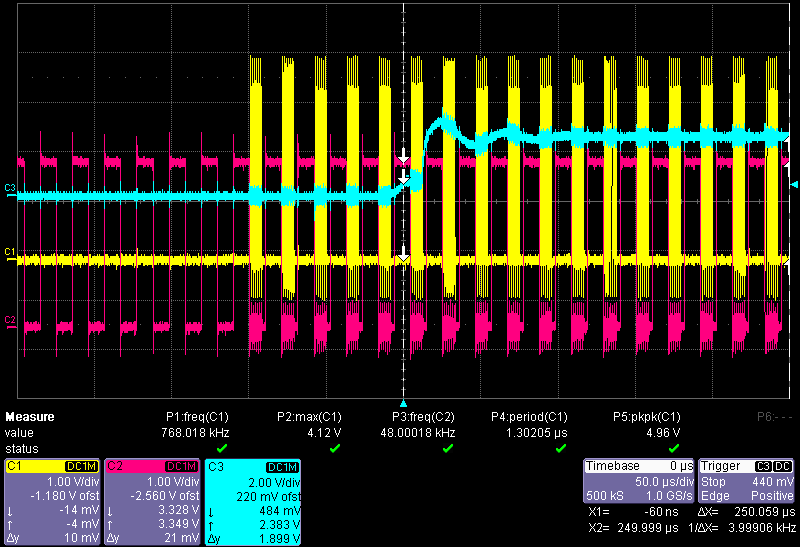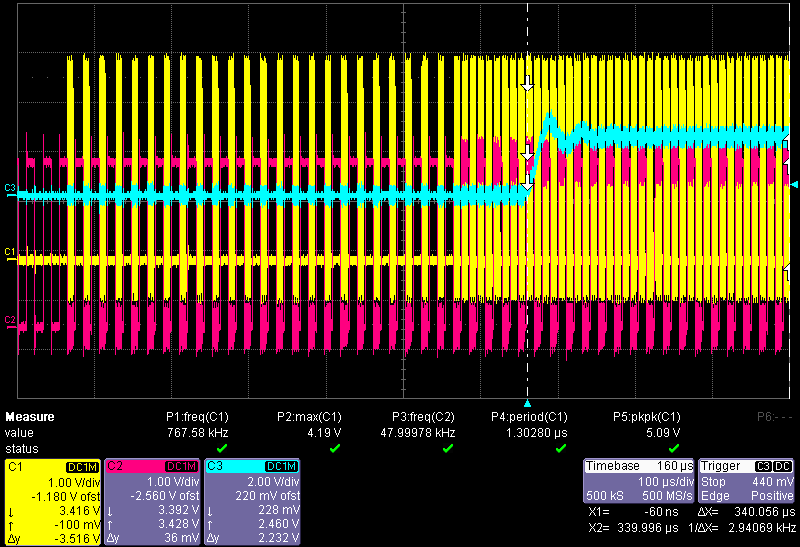Hi,
I have a setup where a PCM5242 is fed data via I2S (16+16bits, 48kHz), the analog output then sent to speakers via a TPA6120, and the sound recorded.
When comparing the data sent and the recording, I am seeing a delay of >20 samples, when the PCM5242's miniDSP is set to preset program 7, Asymmetric FIR Interpolation filter. According to the PCM5242 datasheet, this filter's group delay should be 1.2 samples.
A few samples of the total delay can be attributed to acoustic path, I2S buffer and the microphones used, but even after eliminating these, the majority of the delay seems still to be unexplained. So my strongest suspicion is that there might be some buffering internal to the PCM5242, that is not specified in its datasheet. Can someone confirm this, or say with certainty that there is no internal delay?
I also tried the other preset miniDSP programs in the PCM5242 aswell, and they seemed to increase the total delay approximately as much as the datasheet says their group delay is. I even made a trivial program in PurePath Studio, where the I2S input is routed directly to the Interpolator output ("Interpolator x8 sl"), but the total delay from this was close to the case when running the Asymmetric FIR preset program.
I tried warying the I2S stream as either pink noise (alternating left and right channel), sine sweep or music. Same result with each.
If this extra, unexplained, delay of ~16 samples (nice round number for a buffer, BTW) is due to the PCM5242, is it possible to configure away?
thank you in advance,
Kalle



